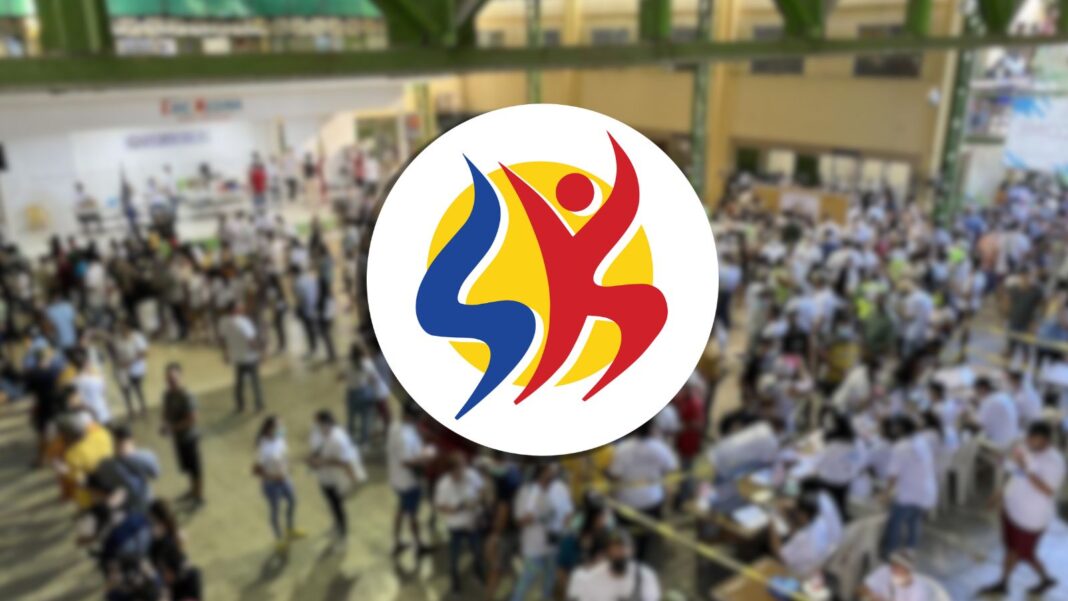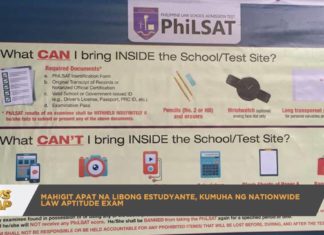 ONE year after the divisive national elections in 2022, the country is set to unite again in choosing its leaders. But, this time, the focus is on the Barangay and Sangguniang Kabataan (SK) elections scheduled for October 2023.
ONE year after the divisive national elections in 2022, the country is set to unite again in choosing its leaders. But, this time, the focus is on the Barangay and Sangguniang Kabataan (SK) elections scheduled for October 2023.
The distribution of seats for the upcoming elections is as follows: There are 42,027 positions available for barangay chairpersons, while an additional 297,189 seats are up for grabs for Sangguniang Barangay members. In the SK category, there are 42,027 positions for SK chairpersons and 294,189 positions for SK members. In total, more than one million candidates have submitted their certificates of candidacy to compete for these over 600,000 government seats after experiencing four postponements since 2016.
However, a pertinent question arises: Are these candidates even qualified to run for these positions?
As prospective leaders of the nation, these candidates must strive to address the underlying challenges that the country is confronting. However, in order to do so effectively, they need to possess qualifications that are genuinely relevant to their respective positions.
The Sangguniang Kabataan (SK) has been a subject of consistent criticism since 2004. According to lawmakers like former House Speaker Pantaleon Alvarez, the youth council is perceived as a misuse of taxpayer funds, with some arguing that SK members receive remuneration without actively contributing to their barangays.
In the earlier years of the SK, it was even labeled as a breeding ground for nepotism and dynastic control. This perception prompted discussions in Congress about abolishing the SK, as some, like former Commission on Elections (Comelec) commissioner Lucenito Tagle in 2013, felt that it had failed to produce any significant contributions to society.
In response to these issues, reforms were introduced and signed into law by former President Benigno Aquino III. Among them was the inclusion of an anti-dynasty provision, which prohibits individuals with close blood ties up to the second degree of consanguinity from holding any SK positions.
One of the key reforms introduced in the Sangguniang Kabataan Reform Law of 2016 involved changing the age eligibility criteria for SK officers. The age range was adjusted from 15 to 21 years old to 18 to 24 years old. This modification ensures that only individuals within the specified legal age range are eligible to run for an SK position.
Additionally, the law mandated a requirement for leadership training programs, aiming to equip potential SK leaders with the necessary skills and knowledge to fulfill their roles effectively.
Furthermore, the reform institutionalized the Local Youth Development Council, which would include participation from various civil society youth groups. This council serves as a support system and advisory body, enhancing the collaborative and consultative aspects of the SK’s operations.
Elected SK leaders serve as the voice of the youth, bearing the responsibility of bridging the gap between young people and the barangay council. They do so by championing advocacies focused on youth-oriented programs, projects, and policies, all aimed at contributing to the nation’s overall development.
This implies that there is a significant opportunity for the youth and the nation as a whole to benefit from new and improved policies that address the challenges faced by the people.
This presents a potential opportunity for the youth, with the hope of putting an end to the calls for abolishing the SK. However, this hinges on whether Filipinos can shift their focus away from voting for leaders primarily based on popularity and personality and instead prioritize candidates’ platforms.
During this election cycle, the SK polls will involve a significant budget of P2.76 billion. In a country grappling with a staggering debt of P14.24 trillion, it’s crucial that we receive substantial value from these government officials.
Regrettably, some Filipinos still view elections as mere spectacles, with celebrities and personalities taking center stage, offering little more than entertainment and competition. At times, candidates fail to present meaningful platforms that address issues related to social inclusion, equity, and the challenges faced by the youth, particularly in the post-pandemic era when education has been significantly affected.
SK leaders should consider leadership beyond just kindness. What Filipinos truly need is a vision—a set of policies that can effectively tackle the country’s problems, particularly in areas like education, health, and crime, which are commonly experienced by the youth.
The Philippines has grappled with severe “learning poverty” exacerbated by the Covid-19 pandemic. According to a World Bank study, nine out of 10 Filipino children under the age of 10 struggle to read a simple text, making the country the leader in learning poverty in East Asia and the Pacific region.
As the October 30 election date approaches, it underscores the importance of scrutinizing and being vigilant about our leaders. The new challenge is that virtually anyone can run for office, unless we thoroughly assess these individuals, understand their qualifications before the elections, and determine what they can bring to the table beyond mere entertainment and kindness.
According to the Comelec, a total of 23.2 million registered voters are expected to participate in the October elections.
The upcoming SK elections could mark the beginning of a shift toward meritocracy, responsible governance, and a genuine commitment to leadership, but only if Filipinos are willing to move away from the politics of personality and entertainment that have dominated our government for years.
Alternatively, if the SK does not fulfill its intended purpose, the option of abolishing it may need to be considered more.














